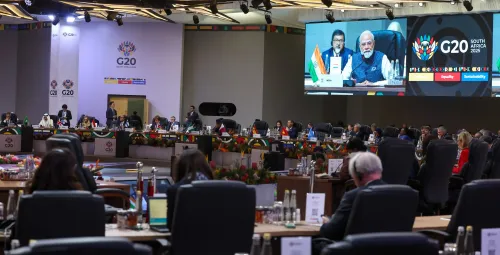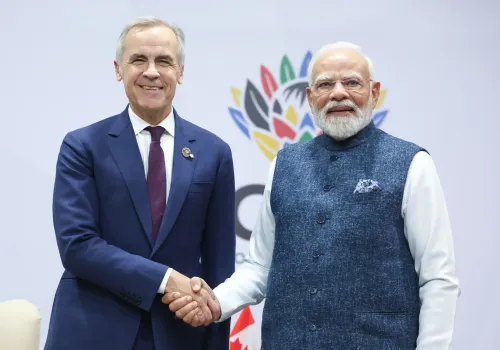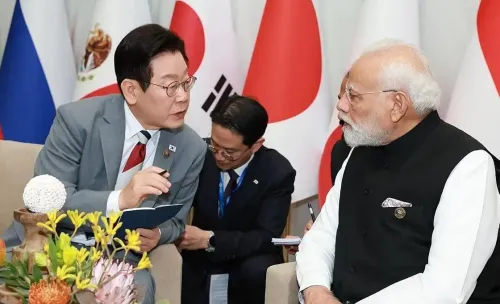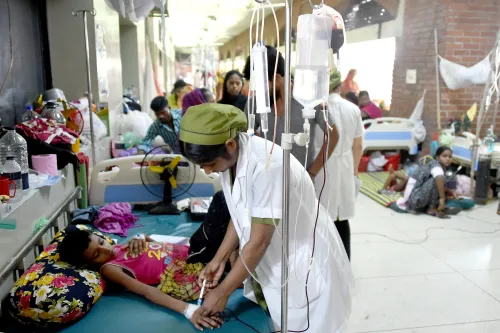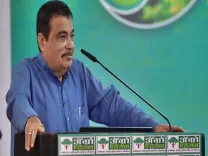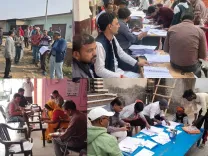What Lies Ahead for Bangladesh: Reform Demands, Awami League's Future, and the BNP's Ascendancy?
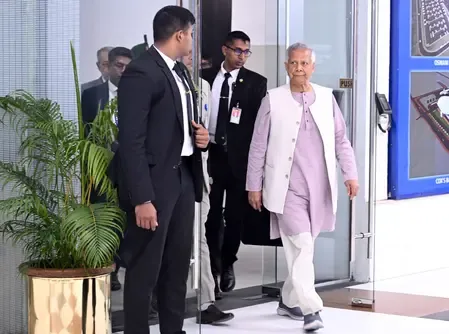
Synopsis
Key Takeaways
- Bangladesh's elections are set for early 2026, contingent on reforms.
- BNP's rise signifies a shift in the political landscape.
- Public trust in security forces is crucial for peace.
- Accountability for past actions is essential for restoring faith.
- Violence potential increases without trust and transparency.
New Delhi, Aug 9 (NationPress) Muhammad Yunus, the caretaker of the interim government in Bangladesh, has pledged that an election in his nation is set for next year. Amid considerable uncertainty regarding the Awami League's ability to participate, the Bangladesh Nationalist Party (BNP) emerges as the leading contender.
The BNP seeks elections before December 2025; however, the interim government has indicated that reforms are necessary and a timeline extending to April may be required. During discussions between Yunus and the BNP’s Tarique Rahman, acting chairman of the party, it was agreed that elections could potentially occur by February 2026.
Yunus and his allies emphasize that no elections will take place without the implementation of key reforms. These reforms encompass constitutional amendments, enhancing judicial and press freedoms, and critical adjustments to the electoral processes.
India is closely monitoring these developments, having consistently expressed the need for a democratically elected government in Bangladesh. The central question remains: Is Bangladesh equipped for elections, and can the reforms proposed by Yunus and the National Citizen Party (NCP) be realized before February 2026?
The removal of Sheikh Hasina followed a significant student uprising, during which security forces employed excessive force against demonstrators. Consequently, the populace demands accountability for those in the security establishment loyal to Hasina.
Last year, a UN investigation revealed that officials from the former government and security agencies in Bangladesh had perpetrated severe human rights violations against protesters, identifying grave crimes against humanity. Numerous cases have been filed against these officials after Hasina fled the country on August 5, 2024.
While the Awami League claims these cases are politically motivated, public trust in the nation’s security forces has eroded. This lack of confidence has precipitated daily violence and unrest.
Given the current state of affairs, one can only speculate the potential for violence during elections, as political parties frequently engage in extreme actions to seize control of polling stations.
Due to widespread distrust, the army has struggled to manage the violence effectively, operating with caution, which is detrimental to the overall law and order situation. Therefore, it is crucial that those responsible for crimes are held accountable to restore public faith.
The fate of the Awami League hangs in the balance, with Chief Election Commissioner AMM Nasir Uddin stating that the party may participate in the general elections unless prohibited by the interim government or judiciary.
Significant uncertainty surrounds the Awami League's participation in the elections. Yunus and the BNP, along with Jamaat-e-Islami and the NCP, stand opposed to the party. If the Awami League is barred, a violent backlash can be anticipated, as the party retains a considerable support base, particularly in rural areas and among minorities and women. Preventing its participation could exacerbate tensions.
For a successful election, the interim government has committed to ensuring that those who have committed criminal acts are brought to justice. Accountability among the army and security forces is vital for restoring public trust. A ban on the Awami League could result in a sweeping victory for the BNP.
Given such a majority and the party's long absence from power, it is likely that they would establish an autocratic regime.

